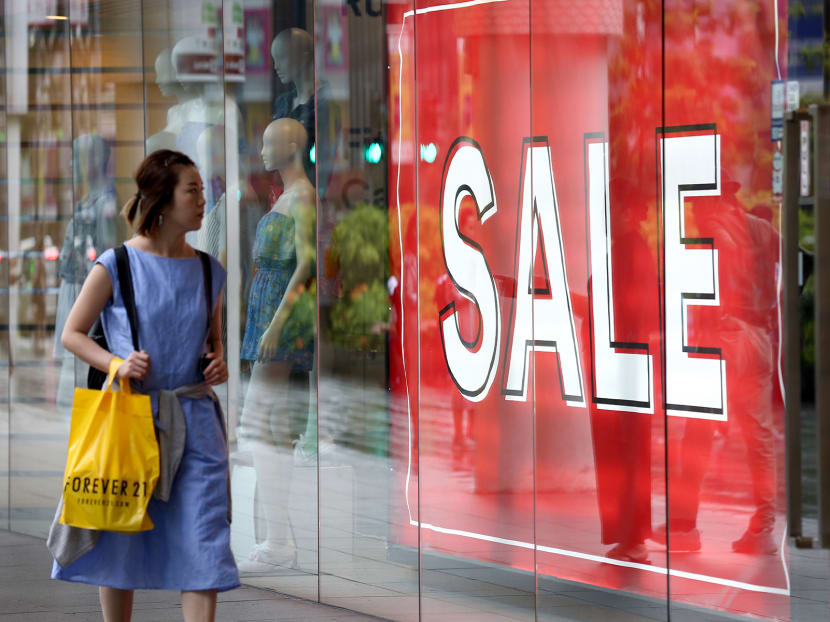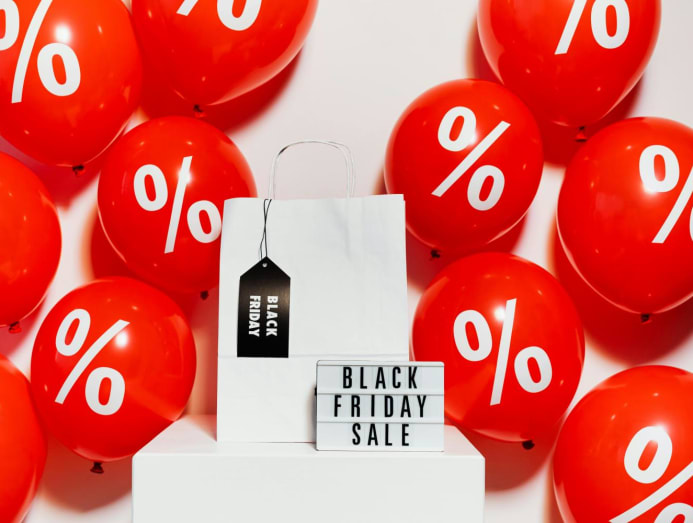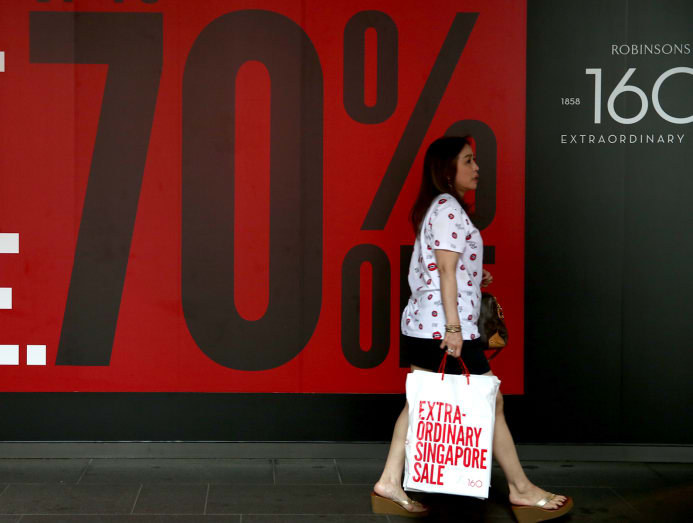Commentary: Why don’t we get excited about sale events anymore?

Remember when the announcement of a major sale used to spark a frenzy? These days, it seems hardly a week goes by without some “blockbuster promo” being announced, while consumers mostly react with indifference.
Clearly, the concept of the “sale event” has lost its shine. But how did this happen?
The original intent of sales promotions was to drive purchases at a consumer level as well as get rid of stock that didn’t move as fast as it should. Giving consumers a bumper discount created an immediate incentive to anticipate a purchase or give in to the urge for instant gratification.
In the past, the hype of sales lay in their carefully curated rarity — they only arrived once or twice a year, usually towards the end right when people were loading up their carts for festive gifting or splurging.
But in recent years, as sales become more and more frequent, the “wow factor” for shoppers has started to wax and wane, the emotional high of past hype diminished or even drained entirely.
This shift should be a major wake-up call for brand owners. Understanding the factors that brought us here is critical for the future of shopping and adapting to evolving market dynamics.
With the advent of various tech advancements, modern e-commerce has dramatically transformed shopping habits.
The Covid-19 pandemic accelerated this change, as shoppers stuck at home increasingly turned to Internet platforms to make purchases at their convenience, and rapidly became savvier at comparing prices and sniffing out online discounts and offers.
Market watchers report that Singapore consumers are increasingly hooked on seeking bargains, becoming skilled discount hunters. However, this does not mean that they are waiting for sales to make a new purchase; instead, consumers seek products offered with the best value for their money, comparing prices and quality from various channels and taking sales as a small factor in the final decision-making process.
PROMO OVERDOSE
In the post-Covid era, it’s now the norm to see a plethora of sales events sprinkled throughout the year: The New Year period in January, Valentine's Day in February, mid-year “6.6” or “7.7” sales in June and July, Singles Day (10.10 in October across Asia or 11.11 globally), and Black Friday in November, and so on.

All these “events” come with enticing promotions and sales — and by the time we reach Christmas at the end of the year, even the holiday hype lands flat. What was previously an unmissable opportunity to shop online has now become “just another sale”.
To add, consumers are increasingly disinterested as they are bombarded with an overabundance of offers. The Great Singapore Sale, a staple in the retail calendar since 1994, was significantly scaled back in 2023 — largely because “every platform, such as Shopee and Lazada, has a sale going on”, according to the Singapore Retailers Association.
In China, the burgeoning popularity of livestreaming has also normalised sales as regular everyday occurrences, rather than effective tactics for drawing special attention.
Inflation is also driving shoppers to become more discerning and cautious in their purchases. OCBC’s Financial Wellness Index finds that just 40 per cent of Singaporeans were spending beyond the basics for most of 2023, down from 48 per cent in 2022.
VALUE VERSUS PURPOSE?
We also need to re-examine why consumers do what they do. For many Gen Zs and millennials, for example, a trip to the mall isn’t solely for the purpose of shopping — it’s a quest in search of unique experiences.
Retail outlets such as Muji are increasingly integrating cafes to provide spaces for socialising and brand experiences beyond one-time purchases of static products. “Funflation” is the buzzword of the moment, characterising how many brands are engaging with consumers through pop-ups and partnerships to offer limited-edition products.
Additionally, consumers are becoming increasingly sophisticated and sceptical. YouGov data in 2023 shows that almost half of Asia-Pacific consumers are drawn to socially conscious brands: Brands that display values aligned with consumer values and get involved with issues of broader societal interest.
The average buyer no longer takes a brand’s claims at face value. Brands must deliver on their promises, as consumers can easily verify information or expose inconsistencies with a simple Internet search.

Ultimately, consumer behaviour in physical and virtual spaces has diverged according to two different priorities: Online — to hunt for the most wallet-friendly bargain, and offline — to enjoy an experience or witness how brands bring their purpose to life.
For brands, the omnichannel strategy for marketing and outreach has never been more complex to manage.
CAN SALES STILL BE EVENTS?
With all brands constantly driving massive price promotions throughout the year, it will be tough for sales events to regain their shine unless they align with the brand’s true purpose. Brands that attempt to be all things to all people, or that solely focus on price, are likely to fail.
The real challenge lies in balancing the appeal of instant gratification and online sales promotions with meaningful engagement. Consumers don’t want to shop with a tired or guilty conscience; they want the best of both worlds.
Market research shows a growing hunger from consumers for a better, more personalised experience. Businesses must rethink their sales promotion strategies to retain consumer loyalty and preference.
Modern consumers will quickly see through any smoke and mirrors and opt to chase the cheapest prices — a chase now made easier than ever with the help of artificial intelligence-powered tools.
The pursuit of instant gratification will continue to lose more steam as more and more consumers seek ways to fulfil both their material needs as well as their values and beliefs. Brands that do not find a way to keep up with the pace they’re setting will inevitably risk getting left behind.
ABOUT THE AUTHOR:
Mário Braz de Matos is the co-founder and managing partner at Flying Fish Lab, a management consultancy.







